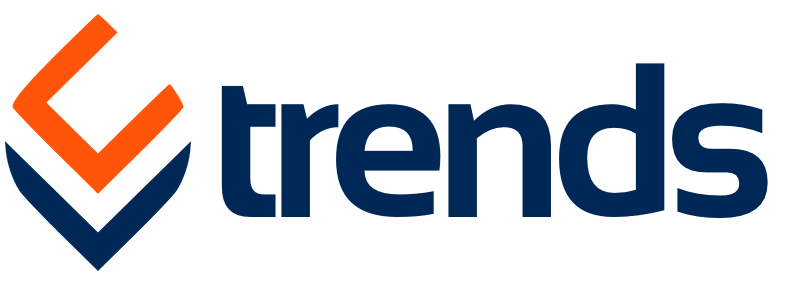Microsoft Introduces Inuktitut to Microsoft Translator
Subscribe Today
Subscribe to Technology News today and receive the latest news that you want to read via Email Alerts.
“Cl Trends Email Alerts Service always keep me up to date”
“Concise, relevant and accurate business news updates”
“Always on time and on topic”
July 7, 2020
Government of Nunavut provided critical data to create new translation system; government also adopting Teams to provide better access to services, healthcare and learning for remote communities
Microsoft announced the addition of Inuktitut text translation to Microsoft Translator. This addition will allow users to translate any of the more 70 languages to or from Inuktitut, the primary dialect of the Inuktut language, which also includes Inuinnaqtun. Inuktitut is spoken by approximately 40,000 Inuit across Inuit Nunangat, the Inuit homeland in Canada and seventy per cent of the residents of Nunavut use Inuktitut.
Now available in the Microsoft Translator apps, Office, and Translator for Bing, users can use AI-powered Azure Cognitive Services Translator and Azure Cognitive Services Speech to add Inuktitut translation to apps, websites, workflows and tools. This provides an additional way to make Inuktitut more accessible at work, at school and in everyday life and will help ensure the language continues to thrive.
“For thousands of years, Inuit have spoken Inuktut across the world. It’s amazing how we have kept Inuktut strong by adapting to changes in our culture. Embracing new technology is a perfect example of our resilience. Adding Inuktitut to Microsoft Translator is a great accomplishment and it shows how collaboration with Microsoft makes a positive and lasting difference in the future of our language. Let’s take the time to celebrate this significant milestone, knowing that it is a strong step on the path to the continued revitalization of Inuktut,” said the Honourable Margaret Nakashuk, Minister of Culture and Heritage, Government of Nunavut.
The Government of Nunavut is working proactively to ensure the vitality of Inuktitut and adding it to Microsoft Translator is just a part of this effort. The Government of Nunavut worked closely with Microsoft to get the language data needed to create the new translation model. Inuktitut speakers also volunteered their time and expertise to validate and test the translations. Every two weeks, one of the world’s 7,000 languages dies with its last speaker. It is predicted that between 50 and 90 per cent of endangered languages will disappear by next century.
The Calls to Action of the Truth and Reconciliation Commission of Canada assert that “Indigenous languages are a fundamental and valued element of Canadian culture and society, and there is an urgency to preserve them.” Working to preserve Indigenous languages is an important step on the road to reconciliation.
The launch of Inuktitut in Translator coincides with Uqauasirmut Quviasuutiqarniq, an annual celebration of Inuktut language in Nunavut, taking place this February. Eighty per cent of Nunavut’s 39,000 residents are of Inuit descent.
“It is an honour and a privilege to work with the Government of Nunavut on such an important project,” said Kevin Peesker, President, Microsoft Canada. “Language is deeply connected to culture and identity. We believe technology can help protect our heritage and preserve language. That is why we are proud to collaborate with the Government of Nunavut and learn from Inuktitut speakers to add Inuktitut text translation to Microsoft Translator.”
The Government of Nunavut also recently deployed Microsoft Teams to many of its 5,200-plus employees and additional support workers, providing new ways to connect virtually across Nunavut’s vast territory. Nunavut is also exploring the potential of leveraging Teams to deliver programs and services across the territory.
While businesses and governments around the world had to quickly pivot to digital solutions to meet the demands of the global pandemic, the Government of Nunavut has long understood the challenges of delivering services to residents in remote locations. There is little transportation infrastructure connecting Nunavut’s 25 communities, some of which are north of the Arctic Circle; Canada’s northernmost territory is accessible only by air and, in the summer, by boat.
Security was a key consideration for Nunavut in choosing Teams after being hit by a major ransomware attack last year that took down everything from Nunavut’s phone systems to its servers. Microsoft was among the firms that jumped in to help with the restoration of these systems. After the attack, officials weighed rebuilding old systems versus moving forward in the cloud and ultimately chose the cloud.
“Our collaboration with Microsoft allowed us to advance our information technology infrastructure by leaps and bounds,” said Dean Wells, corporate chief information officer for the Government of Nunavut. Wells went on to say, “Microsoft is a partner of ours now, and an extension of our family,” after Microsoft’s support to recover from the ransomware attack and help with territory-wide deployment of Teams.
The addition of Microsoft Teams has allowed government employees and residents to access skills training, and other essential services, potentially saving Nunavut millions of dollars in travel costs.
One government employee, Adam Guimond-Pishuktie, a records analyst, is using Teams to learn Inuktitut, so he can better communicate with friends and elders, saying, “We have Teams meetings every week, and it helps a lot. You can try to learn it online and try to understand the grammar yourself. But it’s a lot harder, you’re not understanding how to pronounce words. On Teams, the teachers are very helpful with that.”
“Organizations of all types have turned to Teams in the pandemic to help employees connect and collaborate. Seeing how the Government of Nunavut is using Teams to deliver services to residents who are remote not just because of COVID, but because of vast distances between communities may be among the most transformative in the post-pandemic world.” said Peesker.
For more information on Microsoft Translator please visit microsoft.com/translator; to learn more about Microsoft Teams, please visit aka.ms/workunplugged.
ABOUT MICROSOFT CANADA Established in 1985, Microsoft Canada Inc. is the Canadian subsidiary of Microsoft Corporation (Nasdaq “MSFT”) the worldwide leader in software, services and solutions that help people and businesses realize their full potential. Microsoft Canada provides nationwide sales, marketing, consulting and local support services in both French and English. For more information on Microsoft Canada, please visit www.microsoft.ca.
SOURCE Microsoft Canada Inc.






